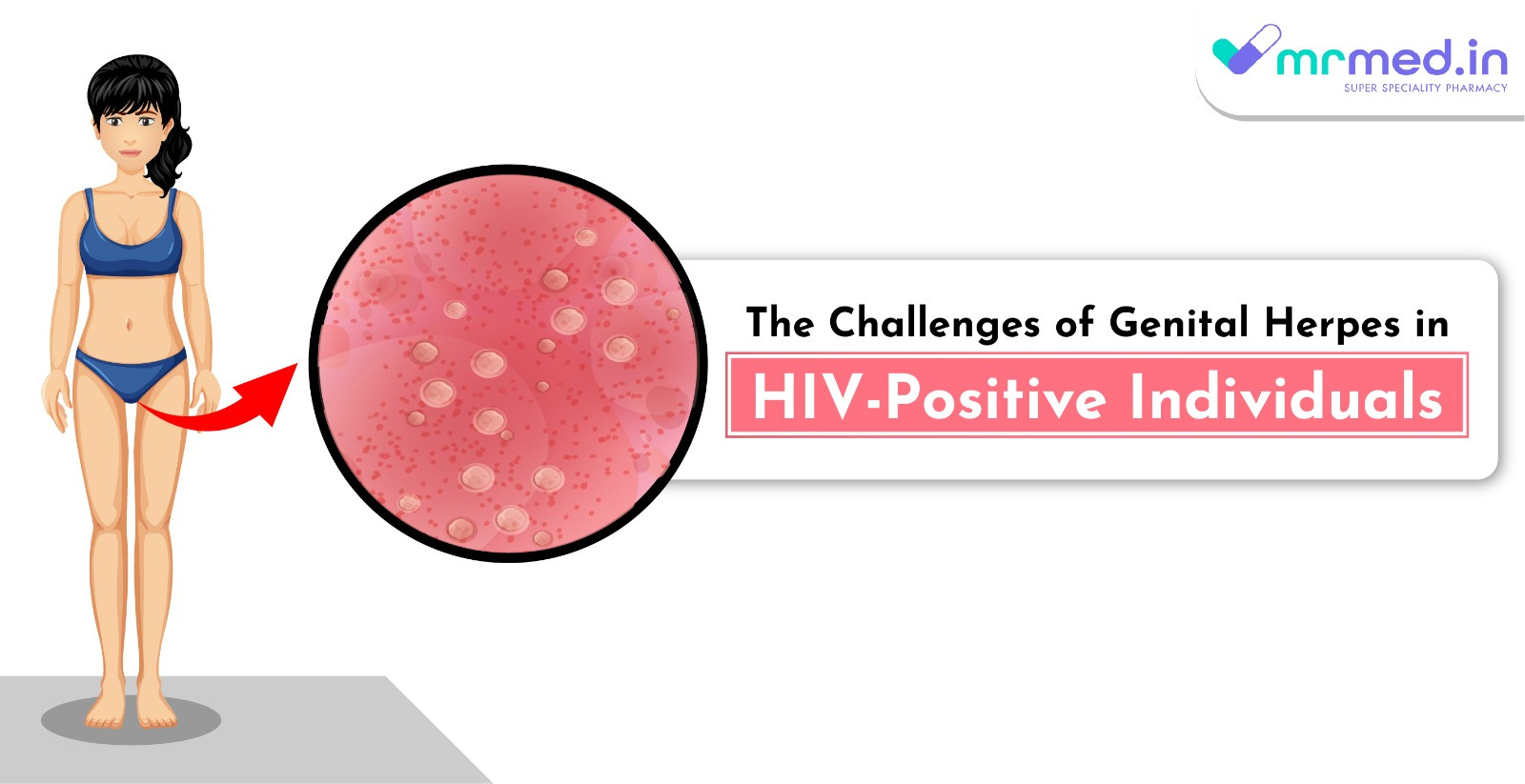Herpes simplex virus, which is a sexually transmitted illness, is the cause of genital herpes (HSV). It may result in painful blisters or sores on the genital region or other parts of the body. An individual with genital herpes may experience more difficulties if they are HIV positive.
One of the major problems for people with genital herpes who are HIV-positive is that they might have more frequent and severe outbreaks. This is due to the fact that the herpes virus can benefit from an immune system that is already compromised due to HIV infection. Furthermore, meningitis and encephalitis are two other herpes-related problems that may be more common in HIV-positive people.
Another issue is that genital herpes may increase the risk of HIV-positive people spreading the infection to others. HIV can enter the body through herpes sores, and those with genital herpes are more likely to have the virus in their genital fluids. Due to this, it may be important for individuals to take additional care to prevent spreading any virus to their sexual partners.
Luckily, both genital herpes and HIV have treatments accessible. Genital herpes outbreaks can be treated with antiviral medicine like Valcivir 1000mg Tablets, which can also be taken regularly to lessen the frequency and severity of outbreaks. Acyclovir, valacyclovir, and famciclovir are a few antiviral medications for genital herpes.
There are numerous antiretroviral medications available for HIV. These medicines can aid in the virus's suppression and shield the immune system from any harm. HIV-positive people can achieve viral suppression by taking antiretrovirals as prescribed, which can significantly lower the risk of spreading the infection to others.
The possibility of prescription medications should be taken into account when using medications for both genital herpes and HIV. Certain antiretrovirals and vice versa may interact with medications used to treat genital herpes. This may reduce the medication's efficacy and raise the possibility of unwanted side effects. To ensure that they are taking their prescriptions safely and successfully, people should engage closely with their doctors.
There are some lifestyle choices that can aid people in managing genital herpes and HIV in addition to medicines. This may entail using safe sexual practises, staying away from situations that may cause herpes breakouts (such as stressful situations and specific foods), and keeping an immune system-boosting diet and exercise regimen.
It can be difficult to coexist with genital herpes and HIV, but it's crucial for people to realise they're not alone in this. People with these conditions have access to a variety of options, such as support groups and online communities. Individuals with genital herpes and HIV can live full and meaningful lives by collaborating closely with their doctors and adopting proactive measures to control their illnesses.
In conclusion, living with genital herpes as an HIV-positive person presents particular difficulties that need for a diversified strategy. Maintaining a positive relationship with your doctor is essential, as is adhering to their recommendations for medications and lifestyle modifications. Both genital herpes and HIV can be effectively treated and managed with the correct support, thanks to the availability of effective medicines for both diseases.




